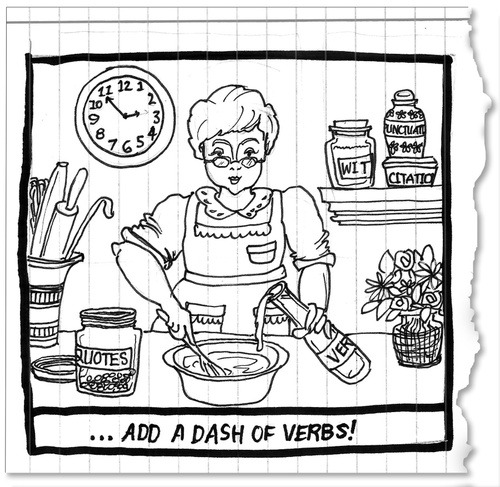
For you lovely readers who are humanities students like me, I know you feel my pain during this time of the semester. Our essays pile up, half of them are due on the same day and must be 8 pages long, include outside sources, contain a bibliography, have a super amazing thesis and —
Okay everyone, breathe! Take a moment to absorb the sunny (but freezing and snow-covered) day and just keep breathing.
Are you done freaking out? A good essay is waiting to be written!
And yes, It’s not going to be fun, it’s probably going to take three days, and you’ll feel like your brain melted halfway there.
But I’m here to help.
I’ve edited A LOT of essays in my lifetime. My friends come to me because I’m the English student, but also because I’ve had years of TAs and professors ranting about poor grammar, minimal quotes, and awkward transitions. And, to be honest, I firmly believe most essays are written well, beneath the mistakes.
Not to worry. As you may have guessed, I have a list to help ya’ll out:
- Weird words. Along with awkward sentences, word usage is critical to a good essay. You have limited words or pages to say what you want, so make sure you use your words efficiently, but also sensibly. One trick is to search your essay for the word “that”. Often, “that” isn’t needed as a connecting word.
- Weird words aren’t exactly specific either. Try reading your essay aloud. My essay-writing process is to write my essay four or five days before, let it ruminate until I forget it, get some space, and then read it aloud one or two days before it’s due. When you read aloud, you’ll end up replacing words or fixing sentences without realizing it.
- Using quotes. Now, this may be more specific to my English and History friends, but it’s worth noting that quotes should not take up your entire essay. If your professor wants quotes, they almost always want minimal quotes, and if you decide to write a quote, you better explain it.
- Stop making block paragraphs. It’s bad, bad, bad! To clarify, a block paragraph is a lengthy paragraph that takes up an entire page and ends up looking like a block. To stop this, find a place in the paragraph – usually a transitional point – and hit ENTER. Indent, indent, indent. Do it. Do it now. Find a point where it feels semi-natural to take a break, and take it.
- Don’t go overboard with introductions and conclusions. Think of these as a sandwich, with bread as the intro and conclusion, and all of the other paragraphs in between as meat. You need bread to hold it all together, but ultimately, the meat is what makes the whole thing taste good.
- MAKE SENSE. Now, this is actually a rant at myself because I have a bad habit of going off on random tangents within essays. Remember, essays have theses, and if they don’t, they definitely don’t have a specific goal. So, if you feel yourself beginning to get off-topic, either re-work your essay’s focus, or delete it.
- Which brings me to my next point: DELETE IT ALL. Okay, not all. But when I edit, I’m harsh. I make a point to delete anything questionable. If it doesn’t fit the moment, it doesn’t fit at all.
- Avoid the semi-colon if you don’t know how to use it.
- Avoid any contractions, like “don’t” and “can’t.“ I know that’s something we’re told in grade 9, but even I make this mistake because it feels unnatural to say “do not” and “cannot.” Again, this is mostly fixed during the editing stage.
- And finally…DON’T WRITE YOUR ESSAYS THE NIGHT BEFORE.
There are a lot more tips – I’m sure – but ultimately, the most important one is to remember to edit your essays and to not under/over-stress yourself. Take breaks, have some coffee or tea, and write for as long as you can to keep your writing fresh and new. Don’t rush, don’t be afraid to ask for help, and don’t feel anxious about the editing process. We all have to write essays, and we all feel that pain. How you deal with it is up to you.